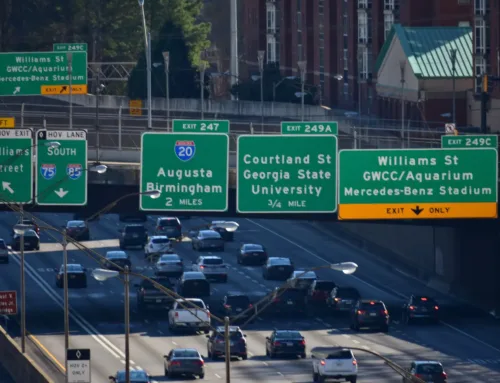It’s no secret that semi-trucks cause issues every day on Atlanta’s roads and highways. At the very least, they can cause traffic to slow down, especially during rush hour. But in some cases, they cause devastating wrecks. When a 3,000-pound car tangles up with an 80,000-pound truck, the results are disastrous.
The unfortunate truth is that some victims of truck accidents don’t get the compensation they deserve because of a lack of evidence in the case. It may be unclear who was at fault in the incident, and trucking companies often have good lawyers who know how to get their clients out of trouble.
As Atlanta truck accident lawyers, we know how difficult these cases can be. One relatively new fad may be able to help: dash cams. While you can spend hours watching funny dash cam footage online, the truth is they can provide invaluable evidence in a truck accident case. When it comes to he said/she said, the power of video can help you win the compensation you deserve.
Why You Can’t Rely on Just Memory After an Atlanta Truck Accident
As humans, we want to believe that our memory is accurate. We sometimes think our brain is like a computer; when we store a memory away, it saves exactly how we want to. The truth, though, is that our memory can easily be manipulated, either by ourselves or by outside influences.
The way our memory works is that every time we remember an event, we essentially reconstruct it over and over again. Every time it’s reconstructed, details big and small are added, adapted and/or erased. For example, if you and a friend shared an experience, you may tell the same story different ways. Hearing your friend tell the story may change how you remember the event.
Our brains have also adapted to suppress painful memories. That means you may not remember the finer details of a truck accident — in fact, you may not really remember it at all. Your brain may choose to “stop recording” during a wreck, leaving you with no memory of the event. This happens because the brain becomes focused on survival, not memory. The flood of adrenaline and other chemicals into the brain during a traumatic event essentially block and even destroy memories.
Clearly, our memories are not all that reliable. That means proving your case based on memory alone may not work too well. As such, having hard evidence, like a video, can be exactly what you need to get the compensation you deserve.
Why Don’t More Cars Use Dash Cams?
If you go online and look up dash cam footage, you’ll most likely find tons of results from Russia. This is because practically everyone in the country has a dash cam in their car.
In America, however, first-hand accounts from the drivers and any witnesses are often used as admissible evidence in truck accident cases. But when it comes down to two different accounts of the same incident, the lack of evidence can cause a standstill in the case — or may cause it to be thrown out altogether.
Most semi-trucks do have dash cams. In some cases, this may be used as evidence in court. However sometimes, if the video shows the truck driver was negligent, the trucker’s attorney may try to have the footage suppressed so it can’t be used as evidence in your case.
That’s why it’s vital to have a dash cam of your own. If you are able to provide your truck accident attorney video evidence that the truck driver caused your wreck, it will make your case to recover the compensation you deserve much stronger.
Speak to an Atlanta Truck Accident Lawyer Today
If you’re involved in a truck accident in Atlanta or the surrounding area, you do have legal rights. At Rafi Law Firm, our truck accident lawyers know how to fight against the corporate attorneys the trucking company or their insurance company may hire. We’re here to help you get the full compensation you deserve.
Contact us online or call us at 404-800-9933 for a free, no-obligation consultation today.



